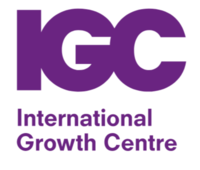FORMAL HIRING PRACTICES, FIRM GROWTH AND INCLUSIVE LABOUR MARKETS
OUR AIMS
The study is set in Addis Ababa, the capital of Ethiopia. The labour market in Addis Ababa is highly informal with only a small fraction of vacancies being posted publicly. At the same time, jobseekers struggle to find gainful employment and firms complain about the difficulty of finding suitable employees. From previous research we know that transport costs and not being able to signal their skills lead to worse outcomes for jobseekers.
This project studies the firm side of the labour market. Specifically, the team conduct a field experiment to explore which constraints firms face when making hiring decisions. Researchers test two hypotheses:
- The cost of posting vacancies leads firms to hiring fewer or less ambitious vacancies.
- That difficulties in observing workseekers skills before hiring leads to fewer and different vacancies and hires at firms.
Importantly, the team also study whether firms change their employee search and hiring behaviour after the end of the intervention.
The project aims to help policy makers better understand the nature of effectively filling job vacancies in Addis Ababa and, ultimately, help them to improve current labour market institutions.
ABOUT THE PROJECT
Researchers conduct a two-arm randomised control trial (RCT) with 621 small and medium sized enterprises (SMEs) across multiple sectors in Addis Ababa, Ethiopia.
First Treatment Group
In the first treatment group, the team encourage firms to post formal vacancies, by reducing firms’ vacancy posting costs through targeted subsidies. Researchers offer to bear all cost of posting firm vacancies on five central job-boards, the major bi-weekly newspaper, and the major online job-board. The aim of this intervention is to encourage firms to use formal employee search channels, such as the posting of vacancies on offline and online job-boards and in newspapers, instead of relying on network-based hiring techniques, such as referrals by existing employees.
Second Treatment Group
In the second treatment group, researchers offer to screen all applicants to firm vacancies on three cognitive or non-cognitive skills of the firms’ choice. This skill screening is conducted in addition to the vacancy subsidies. This treatment group should reduce firms’ reliance on information about candidates obtained through informal hiring channels (e.g. referrals) and, thus, lead firms to conduct a more formal hiring process.
As part of the project, the research team conducted baseline surveys with 621 firms that were actively looking into hiring new employees. Researchers then conducted 3288 follow-up phone surveys to capture detailed information about new vacancies and hires between endline and baseline. Next, the team re-interviewed 606 of the 621 firms at endline to capture their business outcomes, knowledge, expectations, and attitudes towards different hiring channels. Then the team further conducted 1606 interviews after the endline to assess the persistence of the intervention. Finally, the team collected data on almost 30,000 vacancies that were posted in newspapers, as well as online and offline job-boards, throughout Addis Ababa during the study period.
RESULTS
Our intervention successfully increases the share of firms posting in for- mal channels four-fold. This shift in posting techniques does not lead to more vacancy creation, but rather induces firms to gravitate towards creating higher-skill white-collar vacancies. However, not all of these new, high-skill vacancies get filled, with treated firms’ probability of filling a given vacancy decreasing by 20 percentage points. Treated firms update negatively about the quality of applicants recruited through formal channels and reduce formal posting again after the end of the intervention period.
Alleviating information frictions about applicant skills—which has been found to increase job seekers’ labour market outcomes in the literature—does not change the impact of the vacancy posting subsidy. This suggests that the lack of information about job seekers’ skills is not a binding constraint for firms in the context of Addis Ababa. Their difficulty in filling vacancies posted through formal channels instead suggests that an actual mismatch in applicants’ and managers’ expectations constrains firms’ formal search and hiring activities.
The findings of this project will help policy makers design labour market institutions in low- and middle-income countries. In many of those countries, job-search currently happens in-person or through social networks, which can be costly for both firms and jobseekers. By investigating the effect of formalising firms’ employee search processes, this project provides evidence on whether the facilitation of formal search practices by policy makers (e.g. through subsidised online job-boards) can improve firms’ hiring outcomes. The results suggest that widening the pool of potential applicants leads firms to be more ambitious in their vacancy creation and target higher-skilled jobseekers. However, these results also caution that without simultaneous interventions on the jobseeker side, the impact of firm-side interventions on firm outcomes can be limited.













